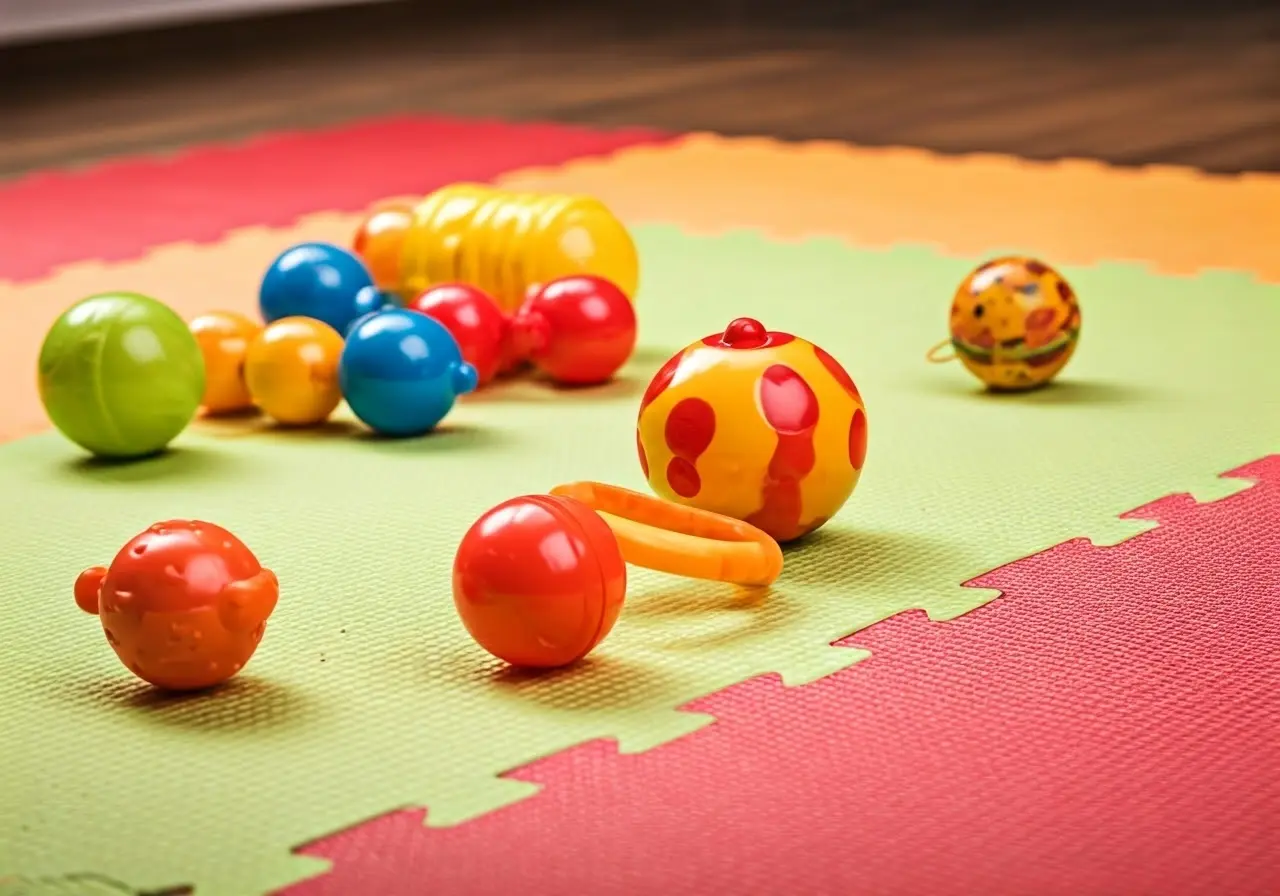Engaging your baby in play is a crucial part of their early development. It not only helps strengthen the bond between you and your baby, but also aids in their physical, mental, and emotional growth. In this blog, we will address how often you should be playing with your baby to ensure they are thriving.
Why is Play Important for Babies?
Play is fundamental for babies as it contributes to brain development, motor skills, and social interactions. Through playing, babies learn to understand their surroundings and express themselves. According to the UGA Cooperative Extension, play helps babies explore new experiences and enhances the networks of connections within their brains. This interplay of exploration and learning lays a strong foundation for cognitive and emotional development.
Furthermore, play allows babies to experiment with different roles and ideas, fostering creativity and imagination. This imaginative play can significantly enhance problem-solving abilities, and even at such an early age, play experiences can lead to increased language capabilities and emotional intelligence.
Recognizing Your Baby’s Cues for Play
Babies give signals when they’re ready to play, like cooing or looking at you. Paying attention to these cues helps you know when they’re most receptive to interaction. When you see your baby becoming more alert and making eye contact, it might be the perfect time to introduce play. Encouraging an attentive approach helps you foster a schedule that aligns with their natural rhythm.
Infants, especially, have different humors during various parts of the day, much like adults. When you observe periods of activity and alertness, these are great opportunities to engage. In contrast, if they show signs of disinterest or fatigue, such as yawning or turning away, it might be time to give them a break.
How Often Should You Play?
While there’s no strict rule, experts recommend engaging in short, frequent play sessions throughout the day. This keeps your baby stimulated without overwhelming them. Depending on their age and developmental stage, aim for several sessions ranging from 5 to 10 minutes at a time. It’s crucial to balance play with other activities such as feeding, nap times, and simply being still, which are all also important for their development.
The key is to maintain a dynamic schedule that offers your baby diverse experiences through play. With infants, multiple mini sessions are preferable as they offer continuous modulation of sensory and motor skills
As your baby grows and becomes more active, you might notice longer periods where they’re interested in play. This is a great opportunity to introduce a balance of structured activities and free play, allowing your child to both learn and explore spontaneously.
Types of Play Activities for Babies
Incorporate a mix of sensory activities, tummy time, and simple games to keep play diverse and engaging. This helps in developing various skills from coordination to sensory recognition. Sensory activities could include exploring different textures with safe household items or playing with colorful objects that rustle or ring.
Tummy time is particularly crucial for infants, as it develops neck and shoulder muscles for future milestones like crawling. The time you dedicate to age-appropriate toys and related activities will promote physical activity and stimulate mental growth. Introducing floor gyms, water play mats, and other engaging toys can deepen sensory experiences.
Simple interactive games like peek-a-boo or hand-clapping encourage social interaction and emotional bonding. Even singing songs or creating simple rhymes engages your baby’s auditory senses and builds vocabulary.
Adjusting Play as Your Baby Grows
As your baby matures, you’ll discover new play methods. Adapting to your baby’s growth phases ensures playtime remains effective and enjoyable. As babies become toddlers, their interaction with toys and people will change, and play will naturally evolve to become more sophisticated and imaginative.
Toddler stages, for example, are perfect for fostering imaginative play with educational toys. Use their growing interests to introduce more detailed role-play scenarios. This can promote greatly improved linguistic capabilities and the understanding of different social roles.
Each phase of development brings unique opportunities for play—start observing these changes early, and use them to your advantage to keep activities new and exciting.
Encourage Growth Through Play
Playtime is essential for your baby’s growth and development. By understanding and identifying your baby’s needs and preferences, you can establish a play routine that is both fun and beneficial. Remember, the key is to keep play enjoyable and interactive, fostering a loving and secure environment for your little one to flourish.






















































































